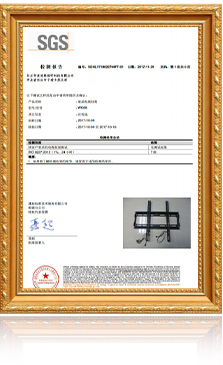tv support suppliers
tv support suppliers
Understanding TV Support Suppliers The Backbone of the Broadcasting Industry
In today’s fast-paced digital world, television remains a primary source of entertainment and information for millions of viewers worldwide. However, behind the captivating shows, news broadcasts, and live events lies a complex ecosystem of technology and support services. At the heart of this ecosystem are TV support suppliers—companies and individuals that ensure the seamless operation of broadcast and production services. This article delves into the vital role of TV support suppliers, their key functions, and the challenges they face in the ever-evolving landscape of media and broadcasting.
The Role of TV Support Suppliers
TV support suppliers encompass a wide range of services, including equipment provisioning, technical support, and operational management. Their contributions are integral to the broadcasting process, helping networks and production companies deliver high-quality content to audiences.
1. Equipment Provisioning One of the primary responsibilities of TV support suppliers is to provide the necessary equipment for broadcasting. This includes cameras, microphones, lighting, and production software. Suppliers work closely with network executives to ensure that the latest technology is available, allowing broadcasters to maintain high standards of quality and reliability.
2. Technical Support Beyond just providing equipment, TV support suppliers also offer technical support during live broadcasts and pre-recorded productions. This support can range from troubleshooting equipment malfunctions to optimizing signal transmission. The ability to respond quickly to technical issues is paramount in a live setting, where even a slight delay can have significant ramifications on viewer experience and brand reputation.
3. Operational Management Effective project management is another crucial element of TV support suppliers' offerings. They often oversee the logistics of production, coordinating between various departments to ensure that everything runs smoothly. This includes scheduling, resource allocation, and on-site management during shoots, which allows producers and directors to focus on creative aspects rather than operational details.
Challenges Faced by TV Support Suppliers
tv support suppliers

While the role of TV support suppliers is essential, they also face numerous challenges in the broadcasting industry. Understanding these challenges is key to appreciating their contribution.
1. Rapid Technological Changes The broadcasting industry is characterized by rapid technological advancements. Suppliers must constantly update their inventory to include the latest innovations in broadcasting technology, such as 4K and 8K cameras, drones, and augmented reality tools. This necessitates significant investment and can strain smaller suppliers who may struggle to keep pace with larger competitors.
2. Increased Competition With the rise of streaming platforms and independent content creators, traditional broadcasting faces increased competition. TV support suppliers must adapt to meet the evolving demands of their clients, including the need for more flexible, scalable solutions that cater to both large networks and smaller production teams.
3. Regulatory Compliance The broadcasting industry is heavily regulated, with strict guidelines regarding content, advertising, and viewer protection. TV support suppliers must navigate these regulations to provide compliant services, which often requires extensive knowledge of local laws and international standards.
The Future of TV Support Suppliers
Looking ahead, the future of TV support suppliers will likely be shaped by ongoing advancements in technology and changing viewer preferences. As audiences continue to demand interactive and immersive content, suppliers will need to explore new solutions, such as virtual reality and interactive live broadcasts.
Moreover, collaboration between traditional broadcasters and tech companies can lead to innovative approaches that enhance viewer engagement. Partnerships between TV support suppliers and tech giants could facilitate the integration of cutting-edge technology into everyday broadcasting, opening new avenues for content creation and delivery.
In conclusion, TV support suppliers play a critical and often underappreciated role in the broadcasting industry. Their services not only support the technical aspects of production but also contribute to the overall quality and reliability of televised content. As the industry evolves, the adaptability and foresight of these suppliers will be paramount in shaping the future of broadcasting.
-
Premium Tilt TV Mount Exporters | GPT-4 Turbo EnhancedNewsJul.31,2025
-
Reliable Tilt TV Mount Company & Manufacturer, Factory Direct PriceNewsJul.30,2025
-
Reliable Tilt TV Mount Company & Manufacturer, Factory Price & ServiceNewsJul.29,2025
-
Installing TV Wall Mount in Apartment for Secure and Sleek SetupNewsJul.29,2025
-
High-Quality Tilt TV Mount Exporters for Secure InstallationNewsJul.29,2025
-
Professional Tilt TV Mount Company & Manufacturer, Competitive PricelistNewsJul.28,2025
